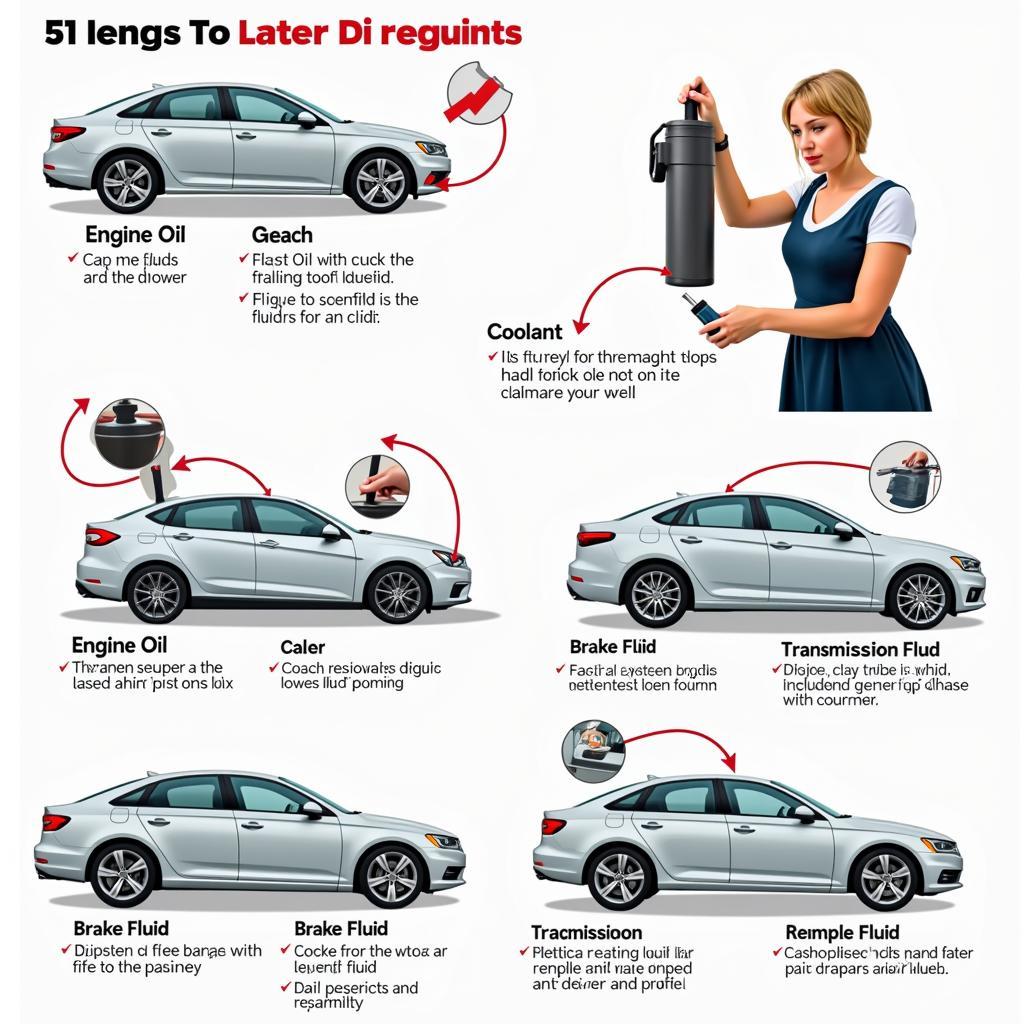The Tesla Model 3 is a popular electric vehicle (EV) known for its performance and technology. But what about the long-term cost of ownership? How does the maintenance of a Model 3 compare to a gas car? This article will delve into the differences in maintenance costs, covering everything from routine upkeep to unexpected repairs.
Routine Maintenance
One of the biggest advantages of EVs like the Model 3 is their simplicity compared to gas cars. Electric motors have fewer moving parts, resulting in less wear and tear. This means fewer routine maintenance items compared to traditional vehicles.
Model 3 Maintenance
- Oil Changes: No oil changes are required for electric vehicles.
- Transmission Fluid: Electric vehicles don’t have transmissions, so there’s no transmission fluid to change.
- Spark Plugs: EV motors don’t have spark plugs.
- Air Filters: While Model 3s do have air filters, they typically need replacement less frequently than gas car filters.
- Brake Pads: Regenerative braking in EVs can significantly extend the lifespan of brake pads.
Gas Car Maintenance
- Oil Changes: Gas cars require regular oil changes every 3,000 to 5,000 miles.
- Transmission Fluid: Transmission fluid needs to be changed every 30,000 to 60,000 miles.
- Spark Plugs: Spark plugs typically need to be replaced every 30,000 to 100,000 miles.
- Air Filters: Gas cars require regular air filter replacements every 12,000 to 15,000 miles.
- Brake Pads: Gas cars have more frequent brake pad replacements than EVs.
Unexpected Repairs
While EVs generally require less routine maintenance, unexpected repairs can occur, just like with any other vehicle.
Model 3 Repairs
- Battery Pack: The battery pack is the most expensive component of an EV. While Tesla offers a limited warranty for the battery, unexpected battery issues can be costly.
- Electric Motor: Electric motors are generally reliable, but they can still fail, requiring expensive replacements.
- Software Updates: Tesla frequently releases software updates, which can sometimes cause glitches or require repairs.
Gas Car Repairs
- Engine: Gas car engines are complex and prone to various issues. Major engine repairs can be very expensive.
- Transmission: Transmission problems can be costly, especially for automatic transmissions.
- Fuel System: Fuel systems can experience issues like clogged injectors or fuel pump failure, requiring repairs.
Cost Comparison
Overall, the maintenance of a Model 3 vs. a gas car can be a complex comparison. While EVs require less routine maintenance, unexpected repairs can be more expensive.
“While the upfront cost of a Tesla may be higher, the long-term savings on fuel and maintenance can make it a more economical option in the long run,” says Alex Miller, a certified auto mechanic.
Factors to Consider
- Driving Habits: If you drive a lot, the increased cost of gas car maintenance might outweigh the lower upfront cost.
- Local Repair Shops: Access to skilled EV technicians can influence repair costs.
- Battery Replacement Cost: The cost of replacing a battery pack can be significant.
- Software Updates: Tesla’s frequent software updates can be both beneficial and challenging.
Conclusion
The maintenance of a Model 3 vs. a gas car depends on individual driving habits, local repair costs, and other factors. While EVs offer benefits in terms of routine maintenance, unexpected repairs can be costly. Ultimately, the best choice depends on your specific needs and preferences.
If you have any questions or concerns, feel free to contact us at Autotippro for expert advice and assistance.
AutoTipPro
+1 (641) 206-8880
500 N St Mary’s St, San Antonio, TX 78205, United States
FAQ
Q: Are EVs more expensive to repair than gas cars?
A: EVs may have higher repair costs for certain components like battery packs or electric motors, but overall maintenance costs can be lower due to fewer routine maintenance items.
Q: How often do Model 3 batteries need to be replaced?
A: Tesla battery packs have a lifespan of approximately 100,000 to 150,000 miles, but this can vary depending on factors like driving habits and climate.
Q: What are the advantages of owning an EV?
A: EVs offer lower running costs, reduced emissions, and advanced technology features.
Q: Do EVs have any routine maintenance requirements?
A: While EVs require less routine maintenance than gas cars, they still require some basic maintenance like brake pad replacements and tire rotations.
Q: How often should I service my Model 3?
A: Tesla recommends annual service appointments for your Model 3, even though many maintenance items are less frequent.





Leave a Reply